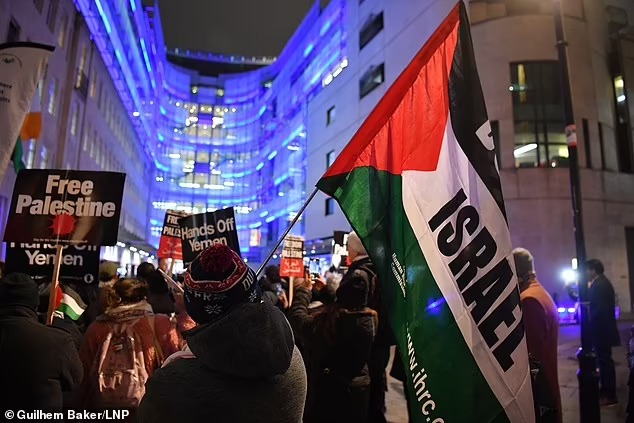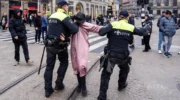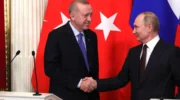Since October 7, many people have taken to the streets to stand up for what they believe to be right. Thousands have done this peacefully.
However, alongside this we have seen some truly disgusting and hateful behaviour.
The public were rightly outraged at footage of a protester climbing the Royal Artillery Memorial in Hyde Park and of fireworks being fired at and injuring police officers and horses.
I share that outrage and I will not stand by and allow the small minority to incite hatred and commit criminal behaviour – undermining the peaceful protests of others.
That is why since I became Home Secretary, I have been working with police chiefs to identify what changes need to be made to stamp out this violent and dangerous disorder.
Today, we have announced a package of measures to put a stop to this behaviour, once and for all.
Firstly, we are removing the ability to cite the right to protest as a reasonable or lawful excuse to carry out disruptive or even criminal behaviour. There can be no justification for the British public to be prevented from getting to work or from visiting a loved one in hospital by protesters.
It is not right for roads to be blocked, preventing ambulances from getting to hospital and people from attending funerals, and people should not be able to use protest as an excuse for doing so.
But we are doing more.
Under our plans, climbing on a war memorial will carry a prison sentence of up to three months and the possibility of a fine.
The people that war memorials honour gave their lives to protect our freedoms. Nobody can reasonably claim that attacking such monuments represents the legitimate exercise of free speech.
And police will be able to arrest protesters using face coverings to conceal their identities at designated protests. We cannot have individuals hurling abusive, extremist rhetoric and hiding behind a mask. There will be no more hiding from justice.
We are also putting an end to people attempting to carry flares and other pyrotechnics on a march. It poses a significant risk of injury to the wider public.
A new offence will ban the possession of flares, fireworks, and any other pyrotechnics at public processions and assemblies for protest. Those who transgress may face a hefty fine.
These changes are proportionate and sensible, and fully in keeping with what most people would consider to be the proper bounds of free speech. Public spaces and monuments belong to all of us, not just to a minority of selfish thugs or extremists seeking to undermine our democracy.
Of course, the right to protest is profoundly important, free expression is vital to our democracy, and people must be able to speak freely and express themselves.
But the freedom to speak does not mean the freedom to incite hatred and commit criminal behaviour. It is not an absolute right, and for good reason. It does not permit violence or intimidation; it does not permit harassment or abuse.
We have laws against vocally supporting terror organisations for a reason. I am pleased to see those who cross the line arrested, charged, and prosecuted. Furthermore, in the last month, I proscribed Hizb ut Tahrir as a terrorist organisation, a group that celebrated and praised the October 7 terrorist attacks in Israel, calling Hamas ‘heroes’, on the streets of London.
The changes we have announced today build on the legislation we brought in last year to help the police tackle the public nuisance and serious disruption caused by protesters. Since the passing of our Public Order Act last year, I am proud that 638 protesters attempting this kind of disruption have been arrested.
I am clear that I will not tolerate hateful, dangerous and intimidating behaviour on our streets, and we will make sure we are doing all we can to stand with communities who feel threatened.









